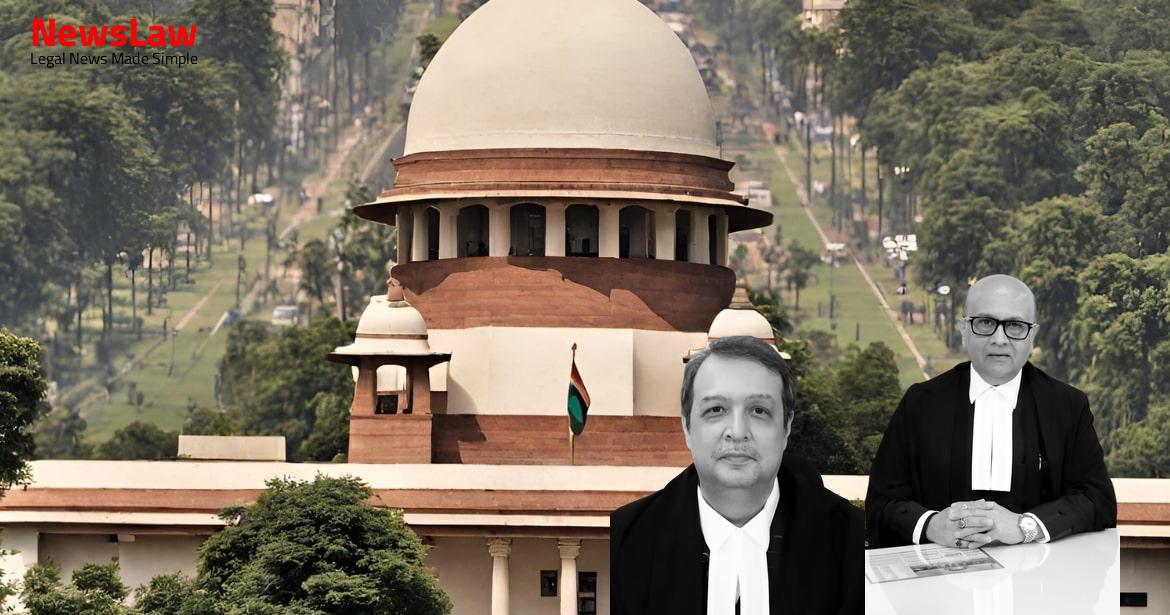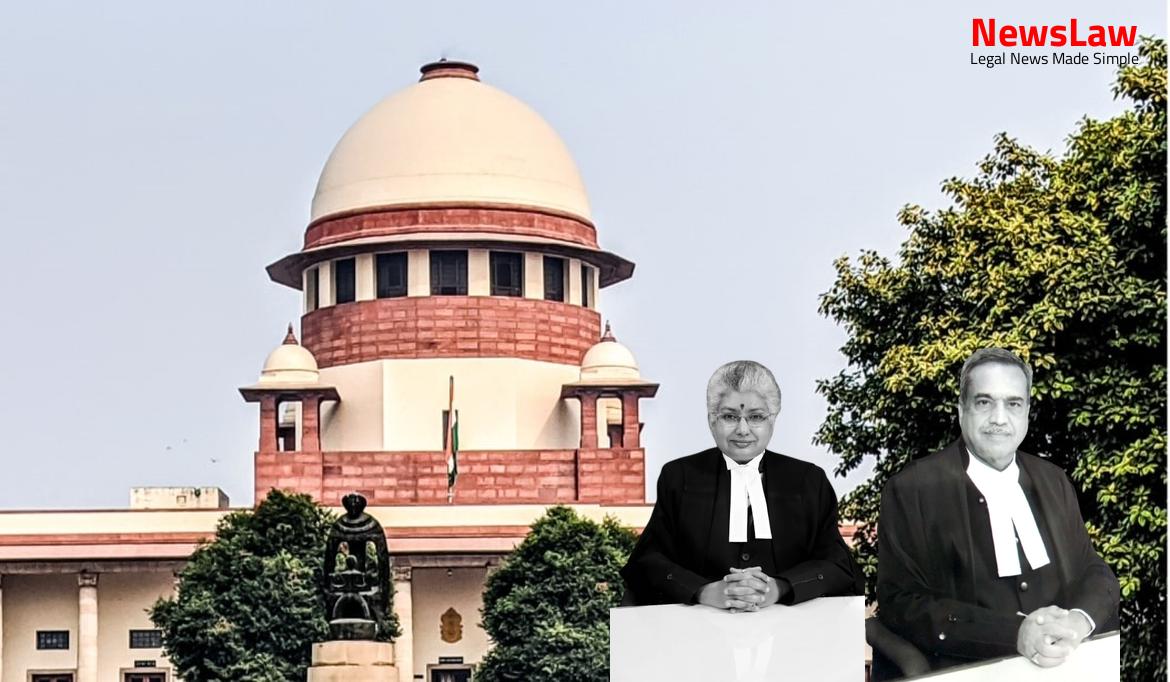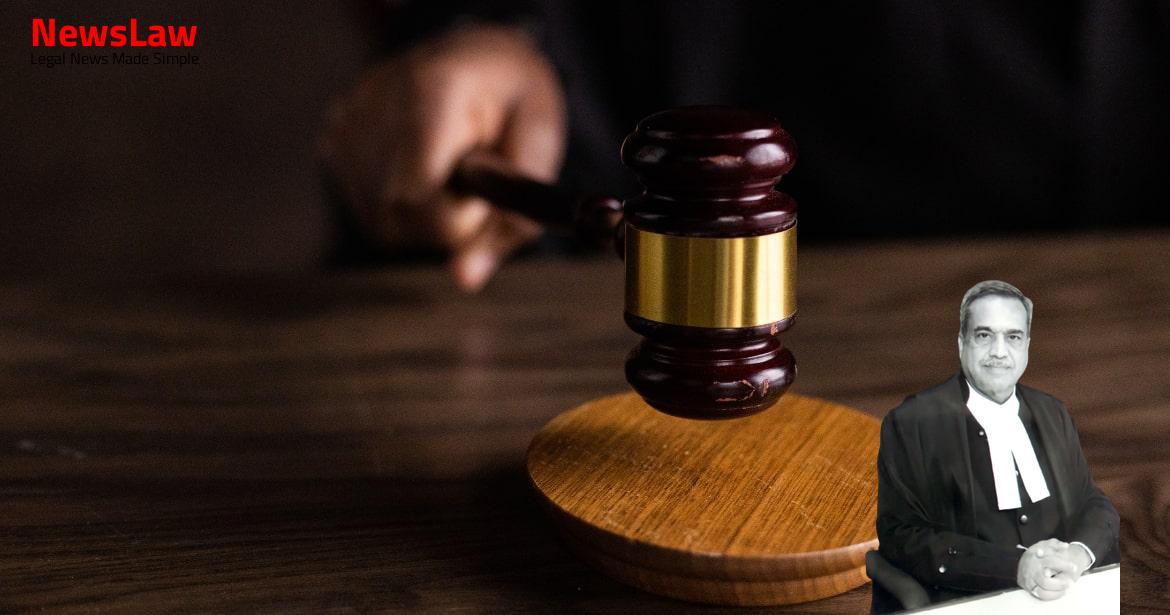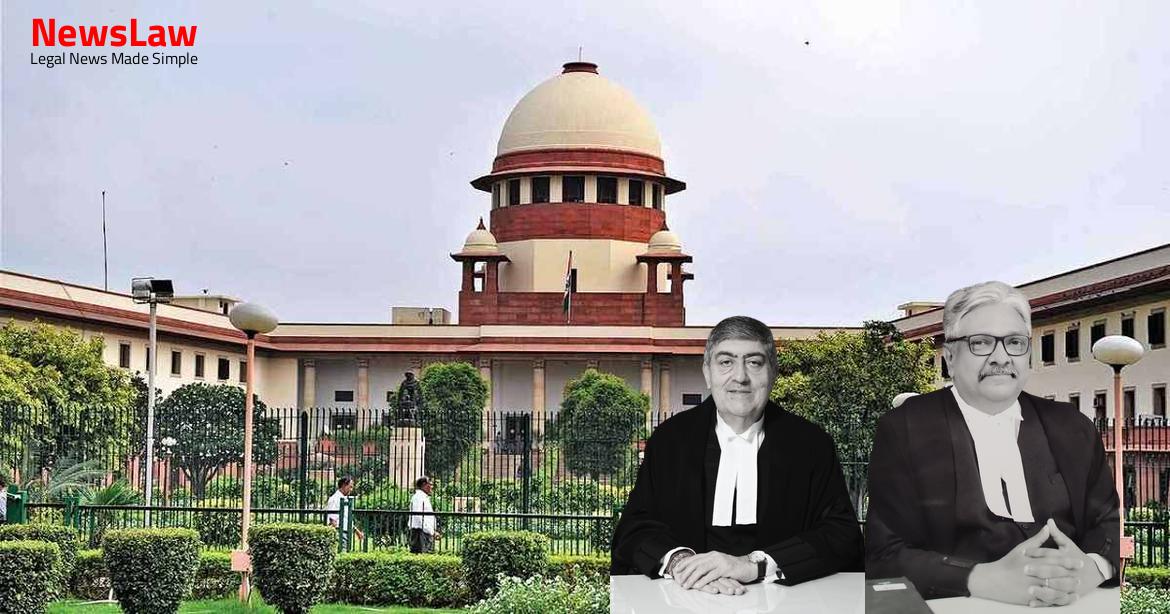A landmark legal case has been decided by the Supreme Court of India in the matter of Tanu Gupta v. Achin Gupta. The judgment revolves around the quashing of FIR No. 95 of 2021, shedding light on crucial aspects of matrimonial disputes and the exercise of justice. Let’s dive into the details of this significant ruling.
Facts
- The First Informant, Tanu Gupta, got married to Achin Gupta in 2008 according to Hindu rituals.
- Accused persons demanded more dowry, including a car, and treated the First Informant cruelly for not meeting their demands.
- Tanu’s family spent a substantial amount during the marriage and gave ‘stridhan’ to the accused.
- The Appellant continued an extra-marital affair with Vandana Sharma and filed a false divorce petition in 2019.
- Accused No. 1, an alcoholic, physically abused Tanu and had illicit relations despite assurances to the contrary.
- The First Informant was pressurized by Accused Nos. 2, 3, and 4 for dowry and harassed for not meeting their demands.
- Tanu’s family tried to resolve the issues but the accused remained adamant about dowry demands.
- Accused persons restricted Tanu’s freedom, withheld her salary, and mistreated her for dowry.
- Tanu was subjected to physical abuse, threatened, and even beaten for objecting to the cruel treatment by the accused.
- The High Court declined to quash the chargesheet citing the seriousness of the allegations and the need for proper investigation.
- The Hon’ble Supreme Court has consistently reiterated the principles governing the exercise of jurisdiction under Section 482 Cr.P.C. for quashing FIRs.
- The Court stated that the power under Section 482 Cr.P.C. should be used sparingly and judiciously.
- It was emphasized that the High Court should not interfere with the investigation at the initial stage.
- The Court highlighted that the power under Section 482 Cr.P.C. is not to be invoked to stifle a legitimate investigation.
Also Read: Fertilizer Corp. of India Ltd. v. M/s Hindustan Polymers
Arguments
- The Appellant and his family had filed a divorce petition and domestic violence case against the First Informant in 2019 and 2020 respectively.
- The FIR No. 95 of 2021 was lodged after over 11 months from the First Informant leaving her matrimonial home and after being served summons in the domestic violence case.
- No plausible explanation has been provided for the significant delay in filing the FIR.
- It is argued that the FIR was filed with a motive of vengeance towards the Appellant as a counterblast to the legal actions taken by the Appellant and his family.
- Appellant and family demanded additional dowry after marriage.
- They physically abused the First Informant and took her salary.
- Appellant stopped providing maintenance after filing for divorce, forcing First Informant to leave.
- Appellant was involved in an extramarital affair, kept secret by First Informant.
- Domestic violence case against First Informant deemed frivolous.
- Appellant did not disclose withdrawal of divorce proceedings.
Also Read: Railway Freight Charges Dispute: Hindustan Petroleum v. Indian Railways
Analysis
- The court should be circumspect and judicious in exercising discretion before issuing process under Section 482 of the Code, particularly in cases arising from matrimonial disputes.
- Allegations in FIR or complaint should be scrutinized to ensure there is some truth and not just vendetta to harass individuals.
- In cases where the allegations are absurd and inherently improbable, with no basis for a prudent person to find ground for proceeding against the accused, the courts should carefully consider quashing the proceedings.
- In cases of matrimonial disputes, the court should be cautious and discourage unnecessary litigation, encouraging parties to resolve their differences amicably.
- Categories of cases where the court can quash proceedings include instances where the allegations do not make out an offense, there is no legal evidence, or there is an ulterior motive for maliciously instituting the proceedings.
- The court emphasized the need to prevent abuse of process and ensure justice in matrimonial cases, highlighting the influx of such cases and the importance of preserving social harmony.
- Consideration of inherent powers under Section 482 of the Code is vital to prevent misuse and abuse of legal processes, requiring courts to examine the FIR closely in cases related to matrimonial disputes.
- The court acknowledged the prevalence of frivolous and vexatious cases in matrimonial disputes, suggesting a careful review of FIRs or criminal proceedings before quashing them, if manifestly baseless or vengeful.
- The court emphasizes that trivial irritations and quarrels between spouses in day-to-day married life may not amount to cruelty.
- There is no restriction in Section 482 of the Cr.P.C. on preventing abuse of the court process only at the FIR stage.
- The court argues against a selective interference at the stage of FIR but not in a chargesheet, highlighting the need for consistency.
- The members of the Bar are urged not to allow one complaint to lead to multiple cases, emphasizing the importance of handling cases delicately.
- Divorce’s impact on children’s upbringing is noted as dubious in the context of matrimonial disputes.
- Not all matrimonial conduct causing annoyance constitutes cruelty, necessitating careful consideration of each case.
- The court criticizes the attitude of ‘arrest first and then proceed’ as disdainful and advocates for a rethink of the existing provisions.
- Statistics on arrests under Section 498-A reflect a highlighted issue of arrests, including women related to the accused.
- Long, protracted criminal trials are highlighted as causing rancour, acrimony, and bitterness in relationships.
- The court stresses that arrests should not be made routinely on mere allegations, and justifications for arrest must be clear and valid.
- The court points out the adverse effects of exaggerated versions of incidents in complaints and advocates for a balanced approach in matrimonial cases.
- A call is made to avoid exaggerated complaints, emphasizing the need for a humane approach in dealing with Section 498-A cases.
- The court highlights the need for a careful evaluation and scrutiny of complaints, materials collected, and attending circumstances before reaching a decision.
- The court underlines that continuation of criminal proceedings must not amount to abuse of process and must serve the ends of justice.
- The judicious exercise of the court’s inherent powers is advised, considering the wide implications of allegations in matrimonial disputes.
- The court emphasizes the need for a balanced approach in dealing with complaints, keeping in mind the impact on all concerned parties.
- The court suggests that for a fair assessment, investigations and the subsequent trial must offer thorough scrutiny and evaluation of evidence.
- The court criticizes the tendency to over-implicate in cases and stresses the need for caution in invoking the drastic power of arrest.
- The high rate of acquittals and the disparity between charge-sheeting and conviction rates under Section 498-A are noted, indicating a problem in the criminal justice system.
- The court raises concerns about the impact of arrest on individuals’ freedom and reputation, calling for a more cautious and balanced approach.
- Section 85 defines ‘cruelty’ as conduct likely to drive a woman to suicide or cause grave harm to her physical or mental well-being.
- Cruelty also includes harassment aimed at coercing the woman or her family into meeting unlawful demands.
- The definition is taken from Section 498A of the IPC.
- Criminal proceedings can be deemed malicious if they are mala fide or have ulterior motives for vengeance.
- Proceedings may be barred by law or a specific provision in the concerned Act for redress.
- The appeal was allowed, and the impugned judgment and order by the High Court were set aside.
- The proceedings from FIR No 95 of 2021 pending in the Court of Judicial Magistrate, First Class, Hisar were quashed.
- Pending applications, if any, will be disposed of accordingly.
- It was directed for one copy of the judgment to be sent to the Union Law Secretary and Union Home Secretary of the Government of India for necessary actions.
Also Read: Nenavath Ravi vs. State of Telangana: Preventive Detention Order Quashed
Case Title: ACHIN GUPTA Vs. THE STATE OF HARYANA (2024 INSC 369)
Case Number: Crl.A. No.-002379-002379 – 2024



